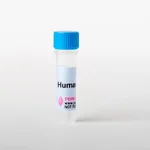Thermo Fisher Scientific CD3/CD4 Antibody Cocktail, FITC, PE, eBioscience
| 상품 옵션 정보 | |||||||||
|---|---|---|---|---|---|---|---|---|---|
| 카탈로그 번호 | CAS 번호 | 설명 | 상태 | 재고 | 단위 | 판매가 | 할인가 | 가격(VAT포함) | 수량 / 장바구니 / 찜 |
| 22-0304-72 | - | Thermo Fisher Scientific 22-0304-72 CD3/CD4 Antibody Cocktail, FITC, PE, eBioscience 50 tests pk | 재고문의 | pk | 425,000원 | - | 467,500원 | ||
다른 상품 둘러보기
Applications
Tested Dilution
Publications
Flow Cytometry (Flow)
20 µL/test
Product Specifications
Species Reactivity
Human
Host/Isotype
Mouse / IgG1, kappa
Class
Cocktail
Type
Antibody
Clone
UCHT1, RPA-T4
Conjugate
FITC , PE FITC , PE FITC , PE
Form
Liquid
Concentration
20 µL/Test
Purification
Affinity chromatography
Storage buffer
PBS, pH 7.2, with 0.2% BSA
Contains
0.09% sodium azide
Storage conditions
4° C, store in dark, DO NOT FREEZE!
Shipping conditions
Ambient (domestic); Wet ice (international)
RRID
AB_469560
Product Specific Information
Description: This product consists of two fluorochrome-conjugated monoclonal antibodies to distinguish human peripheral CD3^+ and CD4^+ T cells. The UCHT1 monoclonal antibody (mouse IgG1, kappa) reacts with human CD3e, a 20 kDa subunit of the TCR complex. Along with the other CD3 subunits gamma and delta, the epsilon chain is required for proper assembly, trafficking and surface expression of the TCR complex. CD3 is expressed by thymocytes in a developmentally regulated manner and by all mature T cells. The RPA-T4 monoclonal antibody (mouse IgG1, kappa) reacts with the human CD4 molecule, a 59 kDa cell surface receptor expressed by a majority of thymocytes, subpopulation of mature T cells (T-helper cells) and in low levels on monocytes. CD4 is a receptor for the human immunodeficiency virus (HIV).
Applications Reported: This product has been reported for use in flow cytometric analysis.
Applications Tested: This cocktail has been pre-titrated and tested by flow cytometric analysis of normal human peripheral blood cells. This can be used at 20 µL per test (containing 1 µg of Anti-Human CD3 (UCHT1) FITC and 0.5 µg of Anti-Human CD4 (RPA-T4) PE). A test is defined as the amount (µg) of antibody that will stain a cell sample in a final volume of 100 µL. Cell number should be determined empirically but can range from 10^5 to 10^8 cells/test.
Target Information
CD3 complex is crucial in transducing antigen-recognition signals into the cytoplasm of T cells and in regulating the cell surface expression of the TCR complex. T cell activation through the antigen receptor (TCR) involves the cytoplasmic tails of the CD3 subunits CD3 gamma, CD3 delta, CD3 epsilon and CD3 zeta. These CD3 subunits are structurally related members of the immunoglobulins super family encoded by closely linked genes on human chromosome 11. The CD3 components have long cytoplasmic tails that associate with cytoplasmic signal transduction molecules. This association is mediated at least in part by a double tyrosine-based motif present in a single copy in the CD3 subunits. CD3 may play a role in TCR-induced growth arrest, cell survival and proliferation. The CD3 antigen is present on 68-82% of normal peripheral blood lymphocytes, 65-85% of thymocytes and Purkinje cells in the cerebellum. It is never expressed on B or NK cells. Decreased percentages of T lymphocytes may be observed in some autoimmune diseases. The CD4 antigen is involved in the recognition of the type II MHC antigen. It is also a receptor for HIV. It is present on most T helper cells and normal thymocytes. The cytoplasmic portion of CD4 is associated with p56lck tyrosine kinase. CD4 expression is commonly found in human lymph nodes and tonsils. CD44 is a type 1 transmembrane glycoprotein also known as Phagocytic Glycoprotein-1 (pgp-1) and HCAM. CD44 is the receptor for hyaluronate and exists as a large number of different isoforms due to alternative RNA splicing. The major isoform expressed on lymphocytes, myeloid cells, and erythrocytes is a glycosylated type 1 transmembrane protein. Other isoforms contain glycosaminoglycans and are expressed on hematopoietic and non-hematopoietic cells. CD44 is involved in adhesion of leukocytes to endothelial cells, stromal cells, and the extracellular matrix.
For Research Use Only. Not for use in diagnostic procedures. Not for resale without express authorization.
배송/결제/교환/반품 안내
배송 정보
| 기본 배송비 |
| 교환/반품 배송비 |
|
|---|---|---|---|
| 착불 배송비 |
| ||
| 교환/반품 배송비 |
| ||
결제 및 환불 안내
| 결제 방법 |
|
|---|---|
| 취소 |
|
| 반품 |
|
| 환급 |
|
교환 및 반품 접수
| 교환 및 반품 접수 기한 |
|
|---|---|
| 교환 및 반품 접수가 가능한 경우 |
|
| 교환 및 반품 접수가 불가능한 경우 |
|
교환 및 반품 신청
| 교환 절차 |
|
|---|---|
| 반품 절차 |
|


